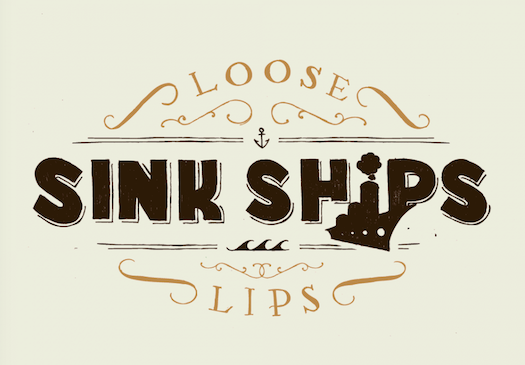Comment from Peter Saxon
During World War II, the slogan Loose Lips Sink Ships was plastered on billboards everywhere among the Allied nations to remind citizens that enemy spies were rife and that a seemingly innocent slip of the tongue may lead to disastrous consequences.
Faced with an existential threat, there was little debate about whether the Australian, U.S. or British governments should be allowed to keep secrets, even from their own citizens. If our Allied soldiers committed atrocities in the field, it was hushed up. It wasn’t just that the public didn’t need to know but, for the most part, they didn’t want to know because brutality was something that only the enemy could be guilty of. And the media wasn’t about to tell them either, because it was bad for morale. And positive morale was vital to the war effort.
When the war was finally won in 1945, a new golden age of a Pax America led democracy began. But the wheels started falling off about 20 years later in Vietnam – or at least the nuts were starting to loosen.
Vietnam was very different to WWII in that there was no real or imminent threat, only a perceived one. Also, it was the first “television war” where the harsh reality of armed conflict could be beamed into the loungerooms of the folks back home. And what they saw wasn’t pretty.
It caused a shift in the the nation’s mood. For the first time a slew of journalists were providing the public with a constant stream of pictures and unvarnished reports from a war zone.
The first generation of anti-war protestors took to the streets. When news of Australian and American atrocities started to filter through, the public was outraged. Australian soldiers, returning from duty, had to be smuggled in to the country in the dead of night to avoid the protestors. Years later we realised the damage done to these young men, many of them conscripts who, having survived the horrors of war, instead of a heroes’ welcome, were ostracised by crowds of ill-wishers upon arrival. If their intention was to protest against what the government was doing in Vietnam in their name, then the soldiers should have been the last people upon whom to vent their anger.
In 2019, the mood has changed again. It seems we’re more confused than ever about the right of the public to know, the right of the media to inform us of what they think we ought to know and the government’s right to keep secrets from us.
In a demonstration of just how fragile our democracy has become, earlier this month, the Australian Federal Police made two rare raids, one after the other, on two major news organisations – on opposite sides of the political divide. One on the ABC and another on News Corp journalist Annika Smethurst’s home, that included a search of her underwear drawer… apparently a place of interest for investigators.
In April last year Ms Smethurst wrote an article that revealed internal government discussions about the possibility of introducing new powers that for the first time would enable the Australian Signals Directorate (ASD) to spy on Australians without a warrant.
The AFP’s next stop was the ABC which, back in 2017, had broadcast some footage of Australian troops allegedly behaving badly in Afghanistan. They took away computers and thumb drives looking for evidence of… we’re not quite sure but according to the ABC’s own information a large proportion of the documents are reports on at least 10 incidents between 2009-2013 in which special forces troops shot dead insurgents, but also unarmed men and children.
Amongst all this, 2GB’s Ben Fordham was questioned by Home Affairs about about how he had obtained ‘highly confidential’ information about asylum seeker vessels. Fordham told them and his audience that there’s no way that he would ever divulge his sources. And rightly so.
All three of these leaks that reached the public through the media were no doubt embarrassing to the government and to the armed forces. But it’s hard to see how they are they a threat to the nation’s security. And if they are a threat, the government’s not about tell us how because… well, it’s a secret.
The ABC this week has challenged the constitutional validity of the search warrant, in what’s being described as a test case for press freedom.
What the feds did say, though, when executing the search warrant at the Smethurst home, was that it was part of an “investigation into the alleged unauthorised disclosure of national security information.”
In other words, they were looking for evidence that would point to the person/s within the government and public service who had leaked information to the media. If they couldn’t prosecute the media for disseminating embarrassing material, they’d go after the whistle blowers who enabled them.
Then in the same week in June, to seemingly demonstrate how the government deals with whistle blowers, the ATO was taking former employee Richard Boyle to court for allegedly breaching laws on handling public documents and recording phone calls. Boyle has been all over the media this past year to expose the ATO’s mistreatment of taxpayers. If convicted, Boyle faces up to 160 years in prison.
But wait there’s more. Around the same time that all this was happening, the United States was successful in its application to extradite Julian Assange from the UK to possibly face trial on espionage which could carry a life sentence. Fairfax Media reported that: acting head of the AFP Neil Gaughan said the raid [on the ABC] was necessary, in part, to ensure the “international community” knows that Australia takes the “leaking of sensitive information seriously”. The “international community” in this case means only one thing, the United States, Australia’s most significant intelligence sharing ally.
Why would it matter to the U.S. how we treat our whistle blowers? Probably because the Assange case, which is already fraught for prosecutors trying to define the legal parameters under which he will be charged, would find it harder to make a heavy sentence stick if it is shown that their charges aren’t considered serious crimes in, Australia.
I’m not one to embrace conspiracy theories but the timing of these raids, one after the other, for unrelated incidents going back 18 months or more are not a good look for a peace-time government in a democracy. If the aim was to stop the media publishing information by cutting off the supply at the source, it is unlikely it will work in the long term because these incidents have united the media as never before. And a media united against a government could spell disaster at the next election.
The government should and must keep secrets that are genuinely a matter of national security. Broadly speaking, the public has a right to know if some of our troops have purposely killed unarmed people. We have a right to know because they fly our flag, they serve in our name and we expect them to carry out their duties with honour. But we are not entitled to know information that could aid the enemy such as details of combat strategies and tactics or exactly where our troops are positioned. Or the names of informants and how they’re deployed.
We live in an age where the definition of free speech and freedom of the press have become nebulous. And it changes almost daily. Did Israel Folau express free speech or hate speech? Either way, the fact that it is divisive speech is self-evident.
While such cultural debates will continue to rage, we need a clear indication from government and our security forces of in exactly what circumstances, what kind of secrets should be kept. It’s not good enough, however, for those agencies to simply slap a Top Secret stamp on anything they don’t want the public to know about. They should have to be able to back up their reasons before a judge and show that there is a genuine threat to national security.

Peter Saxon



Hi Peter. A thoughtful article but I must take issue with one part. Australian soldiers returning from Vietnam were never smuggled in in the dead of night to avoid protesters. This is one of the many myths around Australia's role in Vietnam that seem to have gathered currency over the years. Australian "atrocities" is another of those myths. I suggest anyone with an interest in this subject get a hold of Mark Dapin’s book "Australia’s Vietnam: Myth vs History".